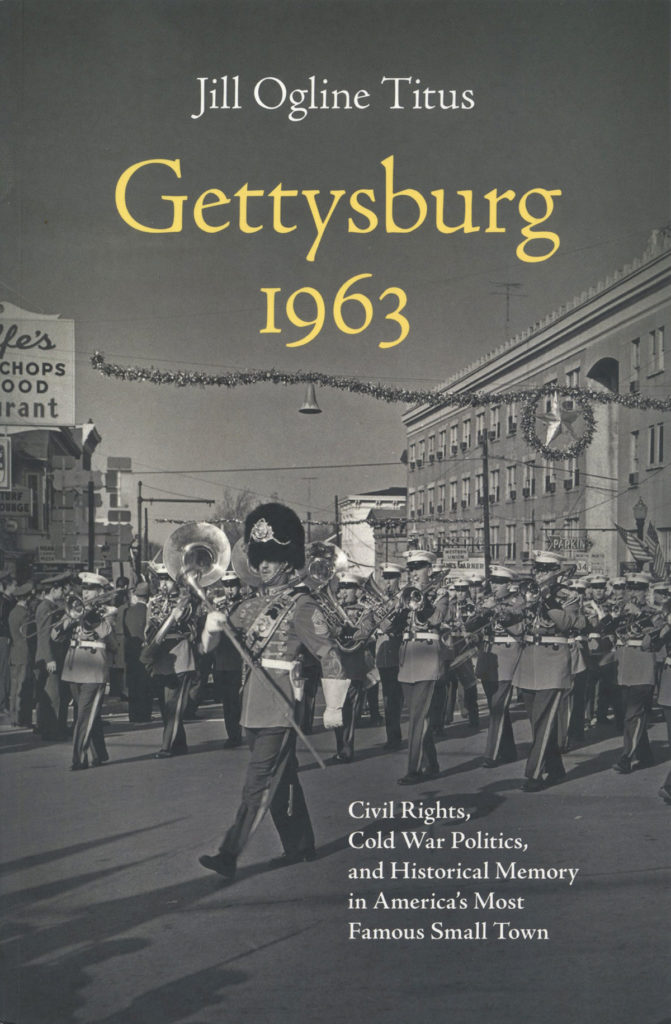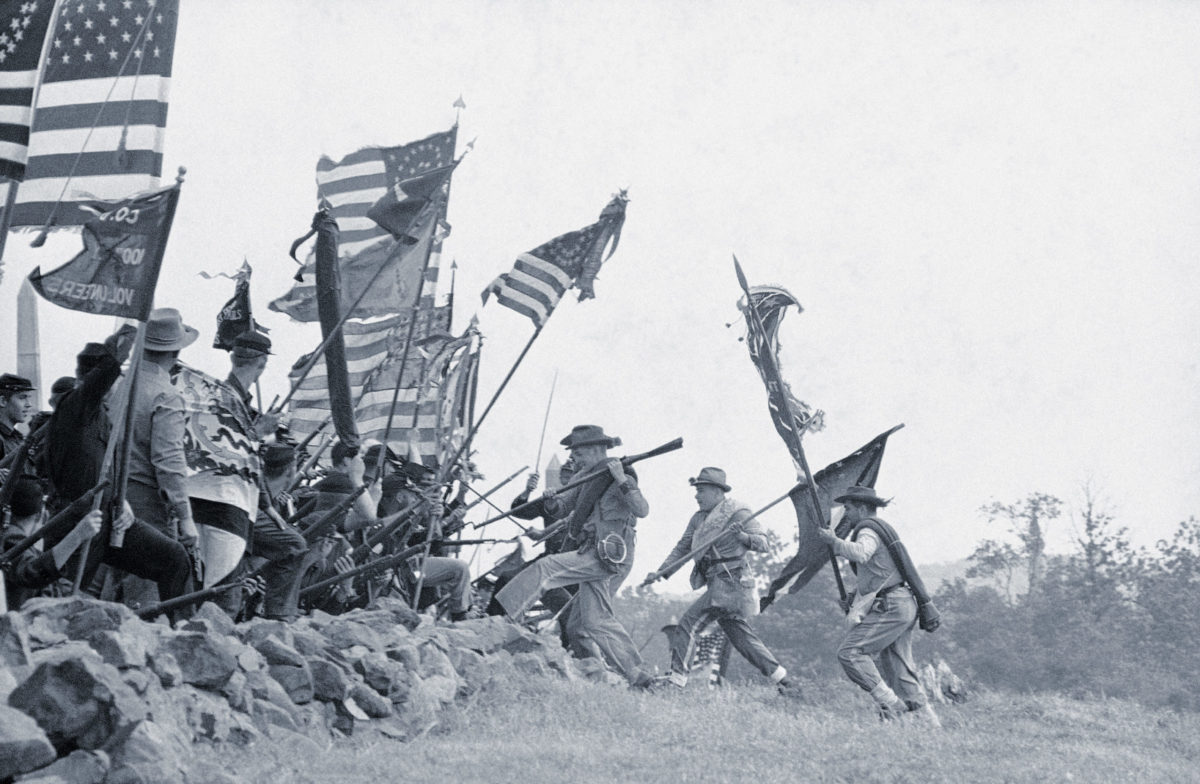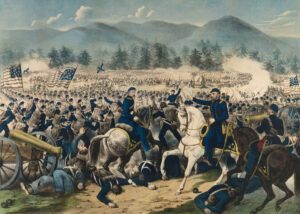As the 1963 centennial celebration of the Battle of Gettysburg approached, it was clear that unlike previous milestone commemorations in 1913 and 1938, this one would be harder to embrace as one of reconciliation. America in 1963 was deeply divided about politics, gender, and especially race. Cold War anxiety was high as many Americans felt nuclear war was imminent. “The Gettysburg Centennial was not a nostalgic paean to the ‘brother’s war,’” Jill Ogline Titus writes in her book Gettysburg 1963. Instead, the centennial commemoration “was intended to heal a fractured citizenry by extolling the United States as the savior of democracy and advancing a vision of undisputed American supremacy—political, economic, moral, and military—in the global war against Communism.”
That was a hard sell, Titus says, as “Cold War tensions and violent clashes over civil rights continually challenged the message of unity, freedom, and political self-determination….Vibrant campaigns for equal rights, north and south, shone an unstinting spotlight on the hollowness of ‘freedom’ and the unfinished work of the Civil War.”
For many Americans, Gettysburg is the Civil War, Titus explains. But it’s also small-town America. Its significance as both makes it the definitive setting in which to examine the context of the centennial Civil War celebrations and the America in which they occurred. Titus expertly explores a compendium of complex themes including racial tensions in and outside of Gettysburg, Civil War memory, Confederate monuments, interpretations of Lincoln’s Gettysburg Address, Gettysburg as a tourist destination, and battlefield preservation efforts. She recaps all the pomp and pageantry on display at the Gettysburg centennial celebration and includes a portfolio of intriguing photos from notable events during the battle anniversary, including a reenactment of Pickett’s Charge.
“From its earliest stirrings during the war itself, the memory of the Civil War has always depended on the present for context and meaning, and all signs suggest that it will continue to do so in future years as well,” Titus writes. Indeed, Gettysburg 1963 is a welcome opportunity to understand how we’ve done this in the past knowingly or unknowingly and how best to do so in the future mindfully, constructively, and with purpose. A worthy read.
This review appeared in the Autumn 2022 issue of Civil War Times magazine.

Gettysburg 1963
Civil Rights, Cold War Politics, and Historical Memory in America’s Most Famous Small Town
By Jill Ogline Titus
This post contains affiliate links. If you buy something through our site, we might earn a commission.





